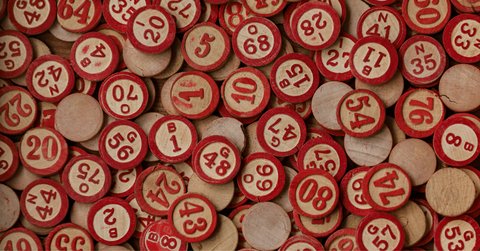Online Bingo Becoming More Popular Than Some Traditional Casino Games

March 3 2024, Published 9:19 a.m. ET
In the ever-evolving landscape of online gambling, the game of bingo has seen a noteworthy ascent, distinguishing itself from traditional casino stalwarts like blackjack and baccarat. The data from the KTO casino platform paints a vivid picture of this dynamic, revealing a stark contrast in player engagement.
While slots lead the pack with an overwhelming 456.17% popularity, the comparison becomes particularly interesting when we look at bingo against blackjack and baccarat.
Bingo, with an 8.58% popularity, might seem modest but its significance is underscored when contrasted with blackjack's 2.67% popularity, and baccarat's even lower 0.58% popularity.
In terms of the most popular bingo games, the spotlight falls on Evolution's 'Mega Lucky Ball,' a game that boasts a significant player base with an active percentage of 2.52% and an average of 16 rounds per player. This game outshines its competitors with a jaw-dropping biggest multiplier of 10,000, offering a maximum win of over $10,000 on a single bet.
The increasing curiosity and interest in bingo within the United States provide further evidence of its growing appeal. A remarkable 36% increase in search interest for “bingo” from an average score of 45 in 2021 to 61 moving into 2024 underscores a shifting landscape in online gambling.
This surge reflects a broader trend towards online bingo, as players seek out new and engaging ways to experience the thrill of gambling from the comfort of their homes, making bingo a noteworthy contender in the digital gaming arena.

The journey of bingo from the bingo halls to the forefront of online gambling highlights a broader narrative of change within the casino industry. Despite facing stiff competition from other casino games, like blackjack, bingo has carved out a niche for itself, driven by innovative game designs, substantial winning potential, and a growing community of online players.
This resurgence of interest, especially in the US, signifies a remarkable transition for a game often associated with a bygone era, now revitalized for the digital age.
The information provided in this article is for general informational purposes only. Gamble or play responsibly. If you or someone you know has a gambling problem, help is available. Call 1-800-GAMBLER. If you’re in the U.K. and need help with a gambling problem, call the National Gambling Helpline on 0808 8020 133 or go to gamstop.co.uk to be excluded from all UK-regulated gambling websites. We disclaim any liability for any loss or damage arising directly or indirectly from the use of, or reliance on, the information presented.


